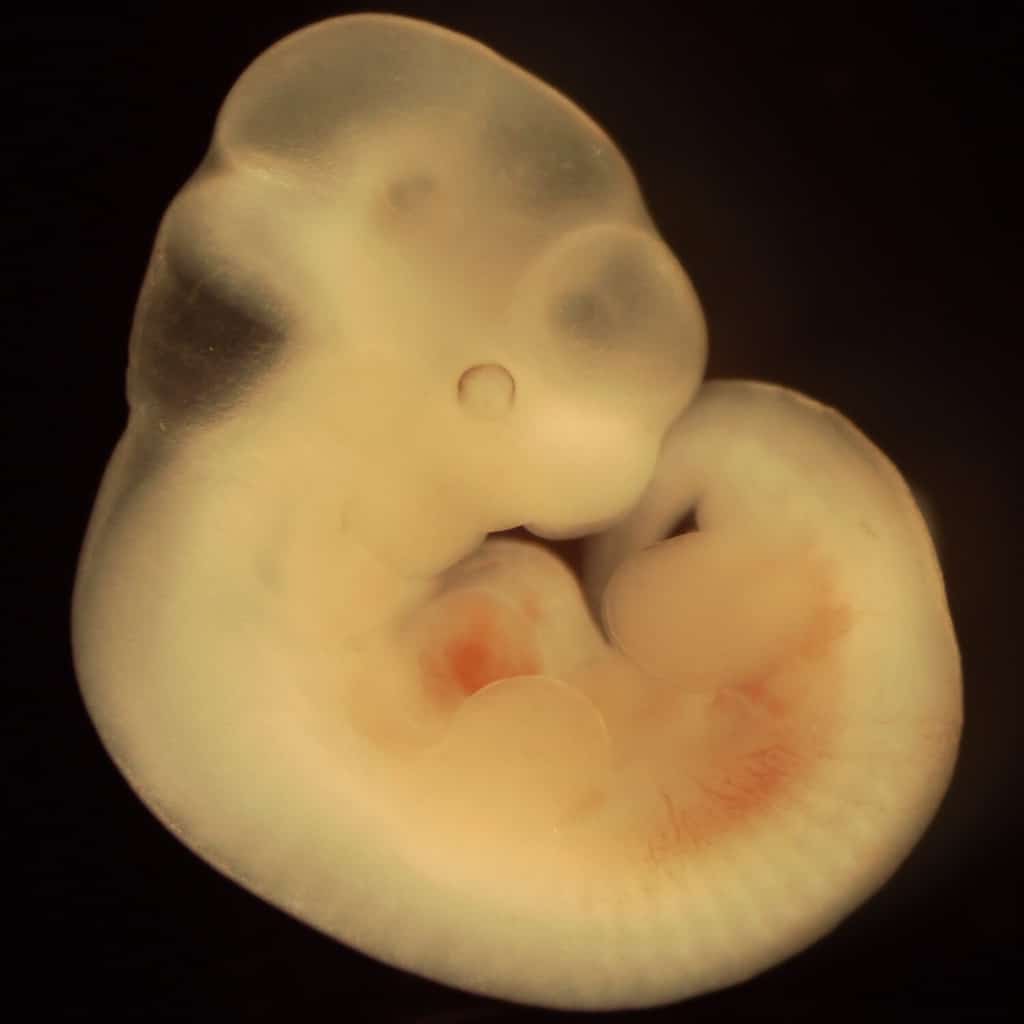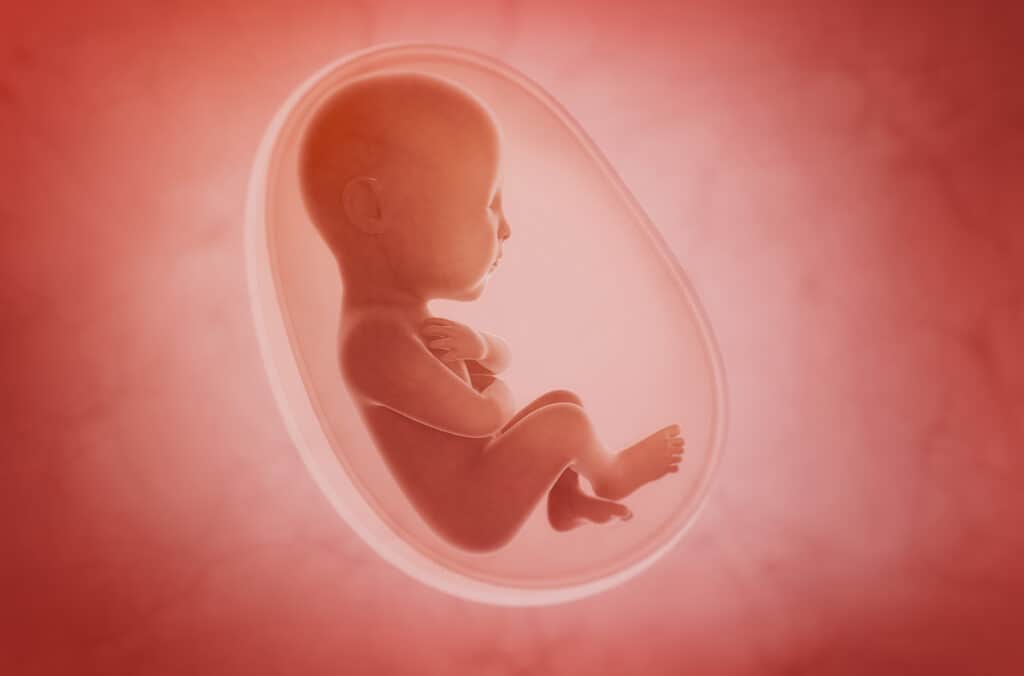An embryo is the initial development stage of an animal or multicellular organism. The embryonic development stage occurs in organisms that reproduce sexually, which involves a gamete that combines with a zygote, developing into an organism that is composed of cells and two sets of chromosomes.
What is the Definition of an Embryo?

This is a mouse embryo on day 11 of development
©59816/Shutterstock.com
Just after fertilization of the female egg with the male sperm, the embryonic stage occurs. An embryo is an animal during the initial stage of development when the organism lacks many distinguishing features and it is still in the egg or within the mother’s uterus. A human is only an embryo for a set amount of time before it transitions to the next stage in development, while other organisms can be referred to as embryos more broadly during early development.
Embryo Summary
Animals that reproduce sexually have an ovum and a sperm that produces a fertilized egg. The egg, or zygote, undergoes many divisions while it passes down the fallopian tube. Eventually, the cells form a ball called a blastula, which attaches itself to the uterine lining and stimulates the formation of the placenta. The placenta transfers nutrients from the mother to the growing embryo. A fluid-filled membrane surrounds the embryo and by the fourth week in humans, the embryo has divided into a head and trunk, with the nervous system and organs beginning to develop. By the finalization of the embryonic stage, the embryo is a distinguishable species.
What is an Embryo Vs. Fetus?

Humans become fetuses after the ninth week of development
©iStock.com/cosmin4000
In humans, the embryonic stage is complete by the ninth week after conception. From the ninth week moving forward in development, it is considered a fetus. In other organisms, the word embryo is a generalized term that refers broadly to the early stages of development before birth.



